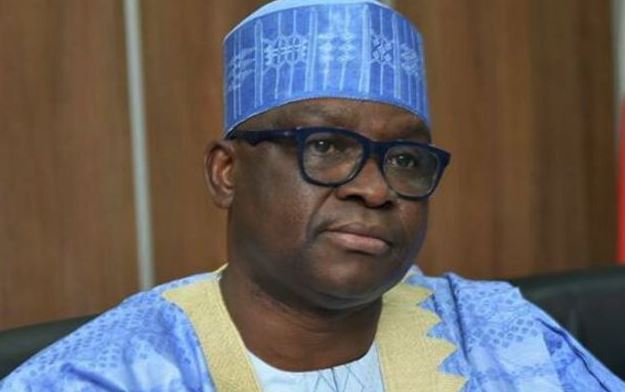Fayose Dragged To Court By Former AG, Ajayi Over N900M Alleged Debt
Posted by Amarachi on Tue 01st Nov, 2022 - tori.ngAyo Fayose
Former Attorney General and Commissioner for Justice, Owoseni Ajayi filed a lawsuit against the former governor of Ekiti state, Ayo Fayose at the State High Court sitting in Ado Ekiti over an alleged N900 million debt owed to him.
Ajayi was Fayose’s Attorney General during his first and second terms as Governor of Ekiti State from 2003 to 2006 and from 2014 to 2018.
In the suit with registration number HAD/113/2018, filed by Ajayi on 17th December 2018, the claimant said he handled a total of 18 cases through his law chambers for the former governor, with each costing a sum of N50 million as professional fee, which he alleged were not paid.
Ajayi said those cases were prosecuted for Fayose between 2006 and 2014, which bordered on his impeachment in 2006 and the corruption case filed against him by the Economic and Financial Crimes Commission, EFCC, among others.
In the writ of summon deposed to by the claimant, Ajayi asked the court for an order compelling Fayose to pay the professional fee without delay.
Ajayi also sought an order compelling the defendant to pay 20% interest on the debt from October 5, 2018, and 10% from the day of judgement.
Fayose in his preliminary objection, however, urged the court to dismiss the case on the premise that it was statute-barred, improperly constituted and that the claimant failed to comply with the conditions precedent.
While being cross-examined in court, Fayose described himself as a full-time politician, and he admitted to his statement on oath of April 16, 2019, that the suit was ill-conceived and lacking the legal validity to fly.
Speaking on his relationship with the former AG, Fayose said; “Yes, I knew him, he did some few works for me”.
Fayose added further: “Between 2006 and 2017, he was working with me and also keeping documents for me.”
At yesterday’s proceeding, Ajayi was represented by Barrister Bayo Idowu, while the former governor was represented by his counsel, Ahmed Tafa.
The matter presided over by Justice L.O. Ogundana was adjourned to December 13, 2022, when both parties would adopt their final replies and written addresses.























































